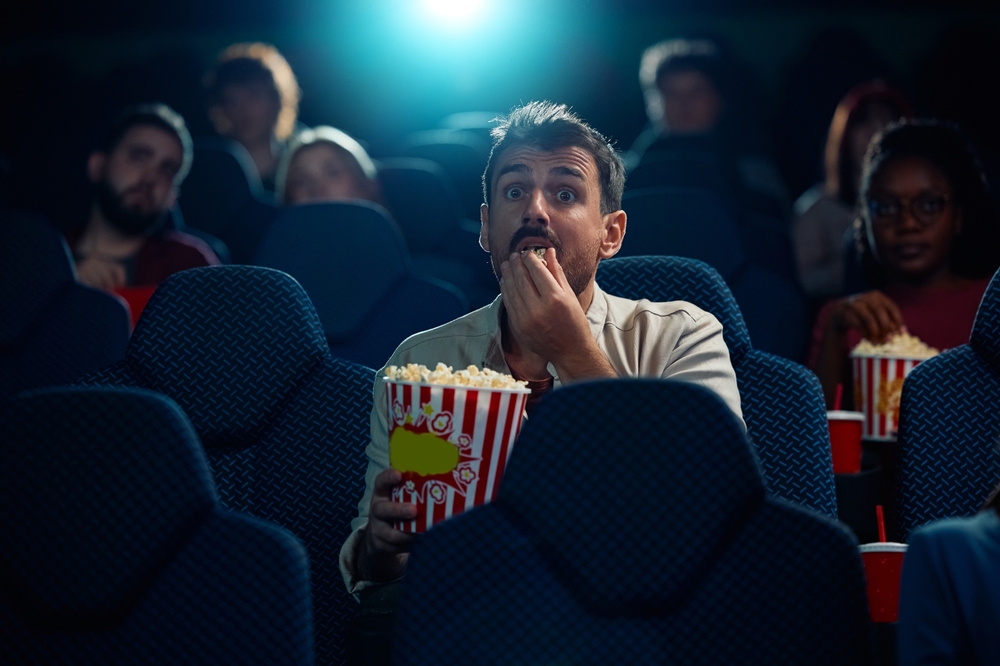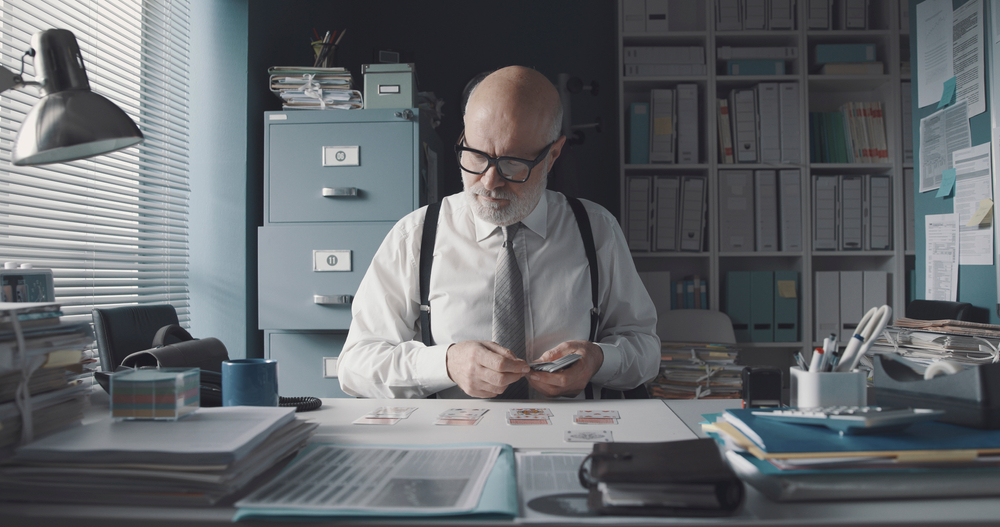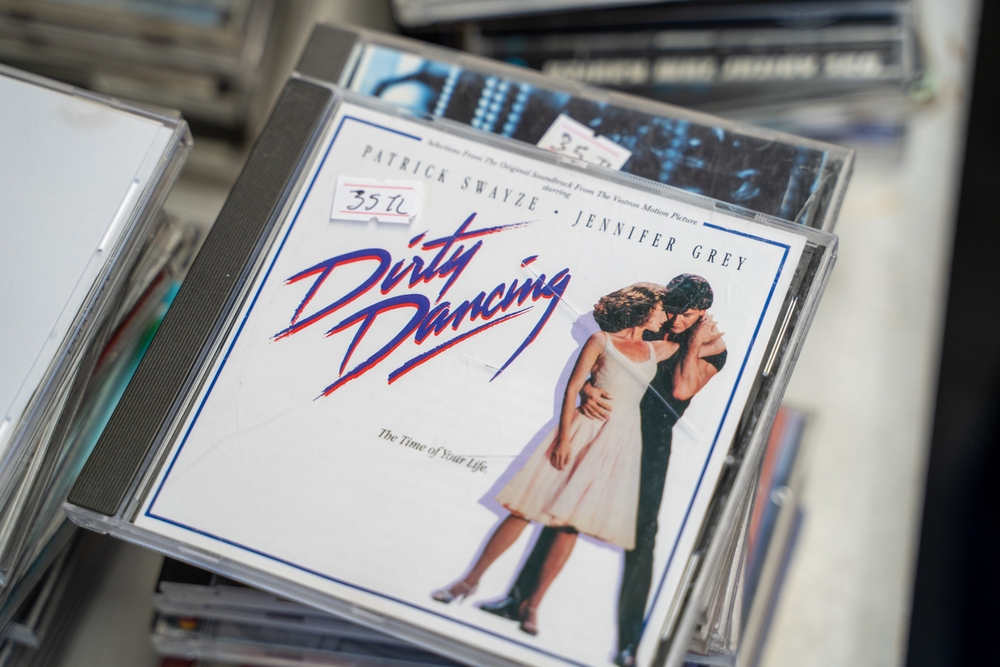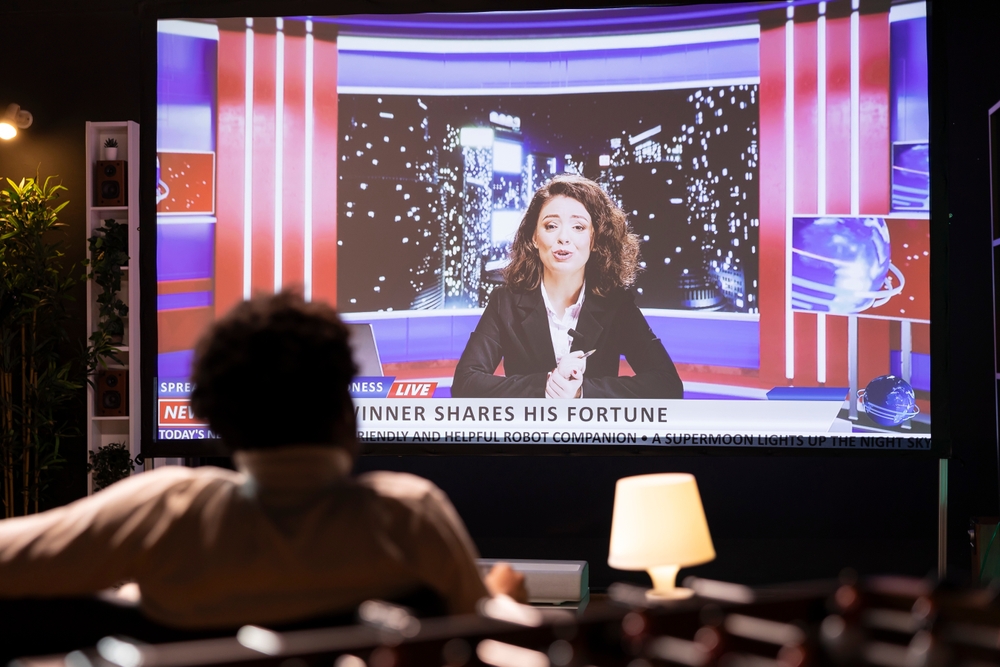12 Outdated Entertainment Habits Worth Breaking
In today’s fast-paced world, many of us still hold onto old entertainment habits that may be hindering personal growth and productivity. While these activities can offer temporary enjoyment, they often leave little room for more meaningful experiences and can lead to a sedentary lifestyle. By recognizing these outdated habits, you can reclaim your time and focus on activities that contribute to your well-being, creativity, and success.
This post may contain affiliate links, which helps keep this content free. Please read our disclosure for more info.
Excessive TV Binge-Watching

Binge-watching TV shows may seem like an easy way to relax, but the habit of consuming multiple episodes in one sitting can take a toll on your time and energy. Sitting for long hours in front of a screen not only encourages physical inactivity but also reduces time that could be spent on more productive or enriching activities. Instead of engaging in hobbies, exercising, or building personal relationships, hours can pass without much growth in your day-to-day life.
Moreover, binge-watching can also impact your mental health. Spending extended periods of time immersed in fictional stories can distance you from reality, making it harder to engage in meaningful conversations or tackle your own challenges. As you continue to invest time in passive entertainment, it may become harder to prioritize real-world tasks and goals that help you grow.
Scrolling Through Social Media

Endlessly scrolling through social media feeds has become a common habit, but it can limit personal growth in several ways. While social media connects us with others, it often does so in a shallow way, reinforcing unhealthy comparisons and fostering a constant desire for validation. This can lead to negative emotions, such as inadequacy, frustration, or jealousy, which can prevent you from focusing on your own journey and self-improvement.
Additionally, the time spent mindlessly scrolling often replaces valuable opportunities for face-to-face interactions or time spent on creative activities. It pulls your attention away from meaningful experiences that could foster stronger relationships or encourage learning and growth. Ultimately, social media may leave you feeling disconnected from your goals and personal aspirations.
Spending Too Much Time Playing Video Games

Video games can offer an enjoyable form of entertainment, but excessive time spent on them can hinder progress in other areas of your life. Long gaming sessions often keep you glued to a screen for hours, limiting physical activity and contributing to a sedentary lifestyle. Furthermore, the time spent gaming may prevent you from engaging in more productive hobbies or work-related activities that help you develop new skills or focus on personal growth.
Moreover, when video games become a habit, it’s easy to lose track of time and delay important responsibilities. The excitement of winning or progressing in a game can lead to procrastination in real life, as the urge to complete “missions” takes precedence over everyday tasks. Over time, this can result in missed opportunities and a lack of balance between leisure and productivity.
Habitual Theater Movie Attendance

While visiting the theater for a movie can be a great way to unwind, doing so too often can limit the amount of time you spend engaging in more enriching activities. Habitual movie-going encourages passivity, as you sit in a dark theater without participating in any way other than watching. This reduces the opportunities for physical movement, social interactions, or learning new things.
Additionally, spending excessive time in the fictional worlds of movies may prevent you from engaging with the real world and taking on your personal challenges. Rather than immersing yourself in someone else’s story, focusing on real-life experiences can lead to greater self-development and growth. It is important to maintain a healthy balance between entertainment and activities that push you towards your goals.
Long Hours at the Arcade

Spending long hours at the arcade can be a fun way to pass the time, but when done in excess, it can have negative consequences on your personal growth. Arcade games often encourage repetitive action and reward you for short-term success, but they do little to encourage deep thinking, problem-solving, or skill development. The habit of spending hours in front of flashing lights and loud sounds can lead to wasted time that could be better spent on more intellectually stimulating activities.
The arcade environment also encourages a sedentary lifestyle, as you’re seated for long periods while playing games. Instead of engaging in physical activity or spending time with others in meaningful ways, arcade games can isolate you from real-world experiences. Balancing arcade visits with other hobbies can help you grow both mentally and physically.
Playing Solitaire or Other Solo Card Games

While solitaire and other solo card games may seem like a harmless way to pass the time, they often keep you trapped in a cycle of passive entertainment. These games provide little opportunity for social interaction or physical activity, and they can quickly become an automatic habit, filling up your free time without providing any real personal development.
Spending time playing card games alone can prevent you from engaging with others or pursuing other activities that help expand your mind or body. It is important to recognize when these habits are preventing you from seeking out more fulfilling experiences, such as taking up a new hobby, exercising, or connecting with others in meaningful ways.
Collecting Physical Media (CDs, DVDs, and Cassettes)

In the digital age, collecting physical media like CDs, DVDs, and cassettes is becoming less relevant and can hold you back from embracing more efficient forms of entertainment. While some may argue that these items hold sentimental value, they often take up unnecessary space and require extra time to manage. The habit of maintaining large collections can distract from the move towards digital, more streamlined ways of consuming media.
This habit also keeps you tethered to old-school entertainment methods, making it harder to keep up with modern trends or to discover new types of media. Furthermore, spending time organizing and maintaining physical collections takes away time that could be spent engaging in more productive activities. By embracing digital formats, you can streamline your media consumption and free up time for other pursuits.
Reading Newspapers or Magazines Daily

While reading newspapers and magazines can be informative, relying on them daily can limit your access to up-to-date information. In the age of online news and social media, these old-school forms of media can become outdated quickly. Spending excessive time flipping through physical newspapers and magazines may prevent you from accessing more timely and diverse content that’s available digitally.
Additionally, the time spent reading newspapers and magazines could be better used for engaging in more productive activities. Whether it’s learning something new, pursuing a hobby, or connecting with others, reading print media often becomes a passive habit, rather than a source of active engagement and growth.
Listening to Radio Shows Regularly

Listening to radio shows, particularly talk radio, was once a popular form of entertainment, but this habit can become a time-consuming practice that leaves little room for personal growth. Much like TV or social media, talk radio often involves passively consuming information that may not be as useful or actionable in your own life. This type of entertainment tends to focus on surface-level discussions that can reinforce existing opinions rather than challenge you to think critically or broaden your knowledge.
Spending long hours listening to radio broadcasts can also be an isolating experience, as it often occurs in solitude rather than fostering real-time conversations or shared experiences. Engaging in activities that encourage social interaction or personal development can be far more rewarding in the long run.
Always Choosing the Same Type of Entertainment

Sticking to the same type of entertainment can limit your exposure to new ideas and experiences. Whether it’s watching the same genres of movies or listening to the same music, this routine can create a sense of comfort, but it also stunts creativity and growth. Exploring new genres, topics, and activities helps you expand your horizons and keeps your mind engaged with the world around you.
When you rely on the same entertainment repeatedly, it may lead to boredom or a feeling of stagnation. Being open to variety, whether through different forms of media or engaging in new hobbies, can keep your mind sharp and your life more dynamic.
Writing Physical Letters Instead of Emails

Writing physical letters may have been the norm in the past, but in today’s fast-paced world, it’s an outdated habit that can slow down communication. While handwritten letters have a personal touch, they require a longer time to send, and responses can be delayed. In contrast, email allows for quick, efficient communication, enabling you to connect with others instantly.
Maintaining the habit of writing physical letters can create unnecessary delays in your personal and professional life. The time spent drafting, writing, and mailing a letter could be better used for engaging in real-time conversations or tasks that support your goals.
Focusing Solely on One News Outlet

Relying on a single news outlet for all your information limits your perspective and may expose you to biased or incomplete reporting. In an age where news is widely accessible from multiple sources, sticking to one outlet can hold you back from learning the full scope of a story or understanding different viewpoints.
Diversifying the sources from which you consume news allows you to stay informed while also challenging your understanding. Relying on just one outlet may prevent you from questioning assumptions or considering new perspectives, ultimately hindering your personal and intellectual growth.
This article originally appeared on Avocadu.
